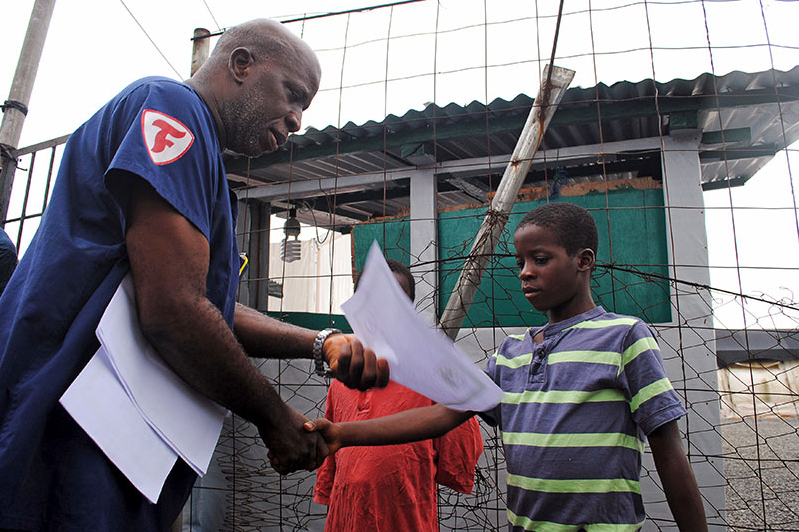
The Ebola virus has popped up again in Africa, this time from two people in Sierra Leone. However, progress against the virus looks promising after initial Ebola vaccine tests have resulted in a 100 percent success rate so far.
According to Clarence Roy-MacAulay of the Associated Press, two new cases of Ebola surfaced in Sierra Leone's Tonkolili district, where a man died last week. The area has been free of the Ebola virus for months until now.
"We now know where the virus is and we are tracking its movement, by surrounding, containing and eradicating its last remaining chain of transmission," OB Sisay of the National Ebola Response Centre said.
Sisay added that the two new cases came from relatives of the man. Authorities have also quarantined 500 people following the death.
"The victim contracted the disease in the capital and then travelled to his home village to mark the end of the Muslim holy month of Ramadan," MacAulay wrote. "He was treated for a fever at the local hospital but authorities did not call the Ebola emergency number."
MacAulay reported that Dr. Tom Frieden, the director of the Centers for Disease Control and Prevention, or CDC, is currently in Sierra Leone to observe the impact of the Ebola outbreak and how to bring the country to an Ebola-free status.
"Frieden will meet with government officials, international partners, and health care workers to consult on the outbreak response and discuss CDC plans to help Sierra Leone," MacAulay wrote.
Meanwhile, progress is being made in the search for an effective Ebola vaccine. According to a report published by the Lancet on Friday, preliminary results indicated that the rVSV-EBOV vaccine gave 100 percent protection to those who had been in close contact with those infected with Ebola.
"In the immediate vaccination group, there were no cases of Ebola virus disease with symptom onset at least 10 days after randomization, whereas in the delayed vaccination group there were 16 cases of Ebola virus disease from seven clusters, showing a vaccine efficacy of 100 percent," the report stated.
According to Katie M. Palmer of Wired, the results looked so promising that the research on the vaccine itself has changed. In addition, Doctors Without Borders has recommended that health workers begin distributing the vaccine, manufactured by Merck, in areas affected by the Ebola outbreak, particularly Guinea and Sierra Leone.
"Instead of using two randomized groups of subjects-one that receives the vaccine immediately after potential exposure and one that receives the vaccine 21 days after-the researchers are now giving the vaccine to every subject immediately," Palmer wrote.
Palmer reported that the U.S. Food and Drug Administration, or FDA, has criticized the study.
"As the Ebola outbreak has settled down in recent months, it has become more difficult to find groups of people exposed to the virus to test vaccines on," Palmer wrote. "And the study's design-a so-called ring vaccination trial, which doesn't include a control group that got a placebo instead of the vaccine-makes it more difficult to draw out statistically significant results."
Despite that criticism, Rebecca Grais of Doctors Without Borders told Palmer that "this is the only vaccine where we have efficacy data." Palmer pointed out that Merck would have to make "a cold chain" in order to deliver the vaccine effectively to those who need it most.
"Even if the efficacy were significantly lower than 100 percent, it would still be worth using," Grais said. "This is a disease that has an extremely high mortality rate."







